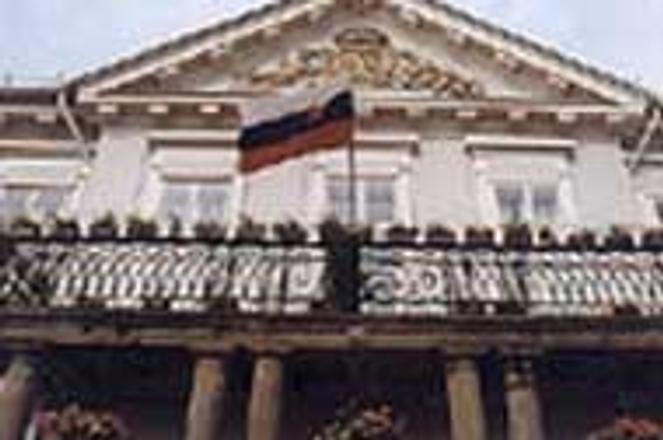The Constitutional Court in Košice (pictured above) produced a verdict on June 28 saying that amnesties cannot be altered once issued. The government has interpreted this ruling as applying only to future cases.photo: Vladimír Hák-Profit
Slovakia's top police investigator is determined to press ahead with prosecutions of those involved in high-level crimes committed during the reign of former Prime Minister Vladimír Mečiar. The decision has infuriated the political opposition, which claims that a high court ruling from June 28 prohibits investigation of the marred 1997 NATO referendum and the 1995 kidnapping of the former President's son.
The Mečiar government's handling of the two cases drew widespread criticism from western diplomats, and was one of the main reasons that Slovakia was dropped from the group of front-runner countries for entrance into NATO and the EU.
Interior Ministry Chief Investigator Jaroslav Ivor told a press conference on July 12 that police are continuing to investigate the role played by former Interior Minister Gustáv Krajči in the infamous foiled referendum, while former secret service boss Ivan Lexa is to remain in pre-trial custody on charges that he coordinated the assault and kidnapping of Michal Kováč Jr. to Austria.
Both men were amnestied on March 3, 1998 by Mečiar, who the day before had inherited crucial powers from outgoing president Michal Kováč. Mečiar amended the terms of these first pardons on July 7, using the same presidential power of amnesty. After Mečiar's defeat in national elections last fall, however, the amnesties were summarily cancelled on December 8 by current Prime Minister Mikuláš Dzurinda.
The June 28 Constitutional Court ruling said that the presidential power of amnesty "does not include the power to change in any way" amnesties already issued.
The opposition HZDS interpreted this ruling to mean that Dzurinda had knowingly acted against the constitution by changing the terms of Mečiar's amnesties, and threatened to call a vote of non-confidence in the Prime Minister as well as to form a special parliamentary committee to investigate the legality of other actions taken by the government.
Mečiar himself used a July 13 press conference to urge citizens to take to the streets in protest of what he called the "anti-constitutional behaviour" of the current government.
Government following hard line
Despite the opposition outcry, the Ministry of Justice and independent constitutional experts have said that the police are not obliged by the court ruling to desist from their investigations of Lexa and Krajči.
An official statement from Justice Minister Ján Čarnogurský on July 9 explained that the court decision meant that both Dzurinda's December 8 cancellation as well as Mečiar's July 7 extension of the amnesties were invalid. Furthermore, the minister said, the court decision had legal meaning only for future uses of the amnesty power.
"After studying the court's entire decision, and following a discussion with constitutional law experts, I am convinced that the decision of the Constitutional Court does not prevent the continuation of criminal proceedings in the cases of the marred referendum and the Kováč Jr. kidnapping," Čarnogurský wrote.
Ernest Valko, a former Chief Justice of the Czechslovak Constitutional Court who helped Dzurinda script his December 8 cancellation of Mečiar's amnesties, said that he agreed with the Justice Minister's position for three reasons.
"My main argument during the preparation of the Dzurinda amnesty, and now following the Constitutional Court decision as well, is that these cases have to be investigated. This much at least is a moral imperative."
"The second, and more legal, ground I have for agreeing is that the court's decision also invalidates the second Mečiar amnesty," Valko continued. "That means that the only valid amnesty is the first Mečiar amnesty, which in fact does not prohibit investigation of these cases."
"Thirdly, this Constitutional Court decision has only a declarative character [meaning that it does not apply to past cases - ed. note]. It doesn't have any effect on the launching of investigations of these cases, or on the people that the amnesty is meant to cover."
The third sector community also stands four square behind the government's position. Grigorij Mesežnikov, director of the Bratislava think-tank Institute for Public Issue (IVO), said that although the Dzurinda government was on firmer moral than legal ground in continuing its investigations, it could still claim to be taking a higher ethical road than that followed by the previous government.
"I don't agree," he said, "that if the Dzurinda government doesn't halt these criminal proceedings - as it should, according to the court decision - it will begin to resemble the Mečiar government, which violated the constitution on 17 separate occasions. The Mečiar government spent four years passing laws which were manipulative and divisive."




